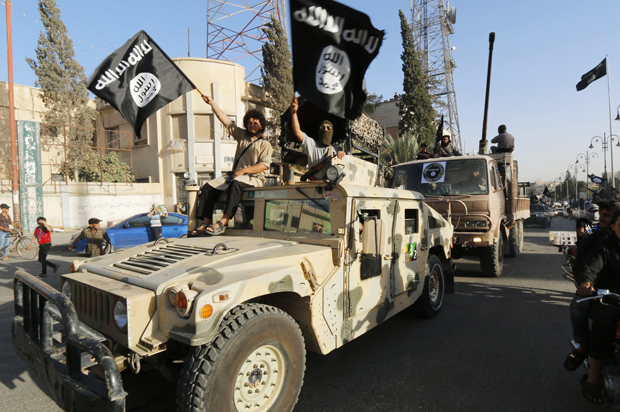“At the moment, with the bombings, we are more like pushing people into the hands of ISIS,” rather than weakening it, warned French journalist Nicolas Hénin in a recent interview with The Syria Campaign.
Hénin was held captive by ISIS for 10 months. Since being released, he has spoken out against Western policy for dealing with the extremist group, which he argues is not effective.
“Strikes on ISIS are a trap,” he said. “We are just fueling our enemies and fueling the misery, the disaster, for the local people.”
Hénin’s warnings are corroborated by Western intelligence agencies. Officials told AP in July that, after a year of bombing, despite spending billions of tax dollars and killing more than 10,000 ISIS militants, the U.S. had not made the extremist group any weaker.
The Pentagon announced in August that it was spending an average of $9.4 million every day in its airstrike campaign. Yet U.S. intelligence agencies admitted such efforts are not just ineffective; they could actually be counterproductive.
In bombing campaigns, civilians invariably die. Hénin has joined an array of other analysts who have argued that, by carrying out ineffective airstrikes, Western countries are giving ISIS a recruiting tactic, and helping it confirm its narrative that the West is waging a war on Muslims.
Hundreds of civilians have been killed in the U.S.-led bombing of ISIS in Syria and Iraq. These deaths, which are scarcely mentioned in the media, may make civilians more sympathetic to ISIS. Hundreds of civilians have also reportedly been killed in Russian airstrikes, according to the same watchdog group Airwars.
Some analysts have even speculated that ISIS may in fact want to provoke the West into carrying out more airstrikes, as a means of helping it further recruit. The November 13 Paris attacks that left 130 people dead and inspired a drastic increase in bombing could have potentially been an example of the trap about which Hénin warns.
Despite the warnings of journalists, analysts, and intelligence officials, the U.K. voted this week to bomb ISIS. Hours after voting, the British military began launching airstrikes against the extremist group.
Hénin stresses that there is no solution that is solely military in nature. “The winner of this war will not be the party that has the newest, the most expensive or the most sophisticated weaponry, but the party that manages to win over the people on its side,” he said in the interview.
“As soon as the people will have hope in a political solution, the Islamic State will just collapse. It will have no ground anymore,” the journalist added.
“To provide security to the people would be devastating for ISIS. And this is what the international community should focus on.” In order to do this, Hénin recommended that all countries involved in the conflict cease all airstrikes. “Everybody” must stop, he stressed. “Not the coalition, not the Russians, not the [Syrian] regime, nobody.”
Hénin, who has worked in Iraq and Syria for years, wrote a book about ISIS. “Jihad Academy” tells the story not just of his captivity, but also of how ISIS emerged.
In the interview, Hénin argues the rise of ISIS and the radicalization of some of Syria’s Sunni population is partially “the result of the terrible repression made by the Syrian regime against” the uprising that began in 2011.
In his book, Hénin also stresses that Western foreign policy and military intervention — particularly the U.S.-led invasion of Iraq and Western support for Middle Eastern dictators — created the desperate conditions in which extremist groups like al-Qaeda and eventually ISIS festered.
While in captivity, Hénin was held in an underground cell with fellow Western journalists. Among them was American reporter James Foley, who was executed. The French government negotiated with ISIS in order to attain Hénin’s freedom.
You can watch the Syria Campaign interview with Hénin below:


